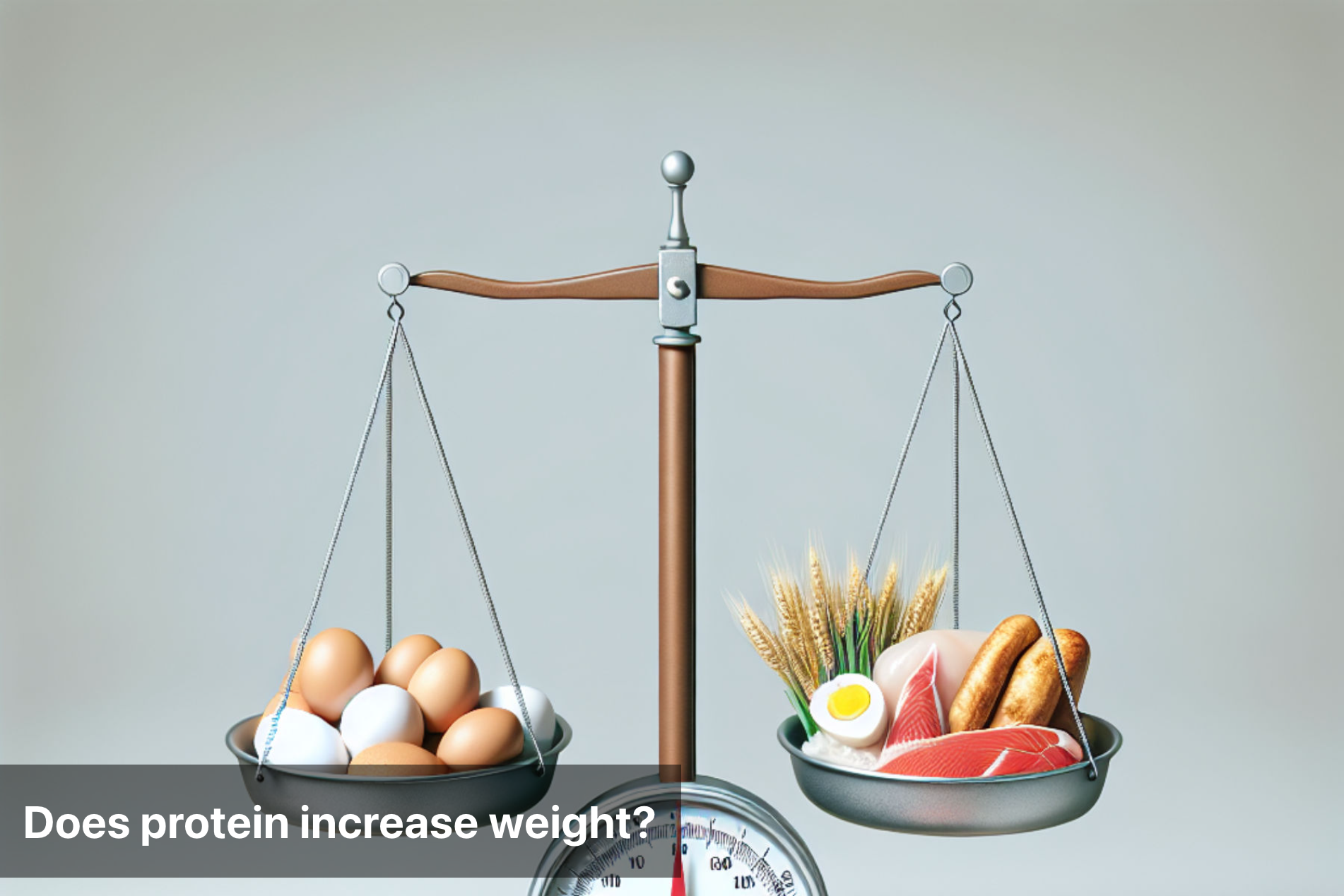
Does protein increase weight?
Protein plays a crucial role in our diet, and understanding its relationship with weight can often lead to confusion. Many people wonder, “Does protein increase weight?” or “Does protein powder increase weight?” These questions arise amid a wealth of information about nutrition and fitness.
It's essential to clarify that protein serves various functions in the body. Primarily, it aids in muscle growth and repair, making it an integral part of any fitness regimen. For those looking to build muscle, sufficient protein intake supports this goal. However, the relationship between protein and weight is not straightforward.
While protein can lead to muscle gain, which may increase weight, it does not inherently cause fat gain. The type of protein consumed, the overall diet, and an individual's physical activity level are crucial factors. Furthermore, protein has a unique metabolic effect; it requires more energy to digest compared to fats and carbohydrates.
In summary, understanding protein’s role is fundamental. While it has the potential to increase weight due to muscle gain, it does not automatically equate to unwanted fat gain. Properly managed, protein can support weight management goals rather than hinder them.

Understanding Protein and Its Role in the Body
Protein is a vital macronutrient essential for various bodily functions.
-
Definition: Proteins are large molecules made up of amino acids, essential for various bodily functions.
-
Amino Acids: There are 20 amino acids, 9 of which are essential and must be obtained through diet.
-
Sources of Protein: Can be found in animal-based foods (meat, fish, eggs, dairy) and plant-based foods (beans, nuts, tofu, legumes).
-
Muscle Growth: Proteins help in muscle repair, growth, and maintenance, aiding in strength and recovery.
-
Enzyme Production: Proteins act as enzymes, catalyzing biochemical reactions like digestion and metabolism.
-
Immune Function: Proteins form antibodies, which support immune responses and protect the body from infections.
-
Hormonal Regulation: Some proteins function as hormones (e.g., insulin), regulating processes such as blood sugar levels.
-
Transportation and Storage: Proteins like hemoglobin transport oxygen, and ferritin stores iron.
-
Energy Source: While not the primary energy source, proteins can be used for energy when carbohydrates and fats are insufficient.
Protein plays a critical role in muscle development, immune health, enzyme activity, and overall bodily functions.
Does Protein Increase Weight? Exploring the Science
|
Aspect |
Details |
|---|---|
|
Protein and Weight Gain |
Protein alone does not cause weight gain; excess calories (from any macronutrient) lead to weight gain. |
|
Caloric Surplus |
If protein intake contributes to a caloric surplus, it may lead to weight gain, as the body stores excess energy as fat. |
|
Muscle Mass |
Adequate protein intake, combined with strength training, can increase muscle mass, which may increase overall body weight. |
|
Thermic Effect of Food (TEF) |
Protein has a higher thermic effect than fats or carbs, meaning the body burns more calories digesting and processing protein. This can aid in weight management. |
|
Appetite Regulation |
Protein helps in increasing satiety (fullness), which may reduce overall calorie intake and potentially help in weight loss or maintenance. |
|
Fat Loss and Muscle Retention |
In weight loss diets, protein helps preserve muscle mass while promoting fat loss, leading to a healthier body composition rather than just weight loss. |
|
Excessive Protein Consumption |
Consuming protein in excess (beyond body’s needs) could potentially be stored as fat if overall caloric intake is too high. |
|
Protein and Water Retention |
High protein intake may lead to temporary water retention, making you feel heavier, but this does not equate to fat gain. |
|
Role in Metabolism |
Protein can slightly boost metabolism due to its higher energy expenditure during digestion, supporting weight management. |
The Role of Protein Powder in Weight Management
Protein powder can play a significant role in weight management, but its impact largely depends on how individuals use it within their overall diet.
|
Aspect |
Details |
|---|---|
|
Supports Muscle Growth |
Protein powder aids in muscle repair and growth, boosting metabolism and fat burning. |
|
Increases Satiety |
Helps curb hunger and reduce overall calorie intake, making it easier to stick to a diet. |
|
Convenient |
Easy to incorporate into meals or snacks, providing a quick source of protein. |
|
Helps Preserve Lean Mass |
Protein powder helps preserve muscle during weight loss, promoting fat loss instead of muscle loss. |
|
Caloric Control |
Can be part of a calorie-controlled diet, ensuring adequate protein intake without excess calories. |
|
Boosts Metabolism |
Protein has a high thermic effect, increasing the calories burned during digestion and metabolism. |

The Impact of Protein on Body Weight
The discussion surrounding protein and its potential impact on weight has revealed several key insights. First and foremost, protein plays a crucial role in building and repairing muscle tissue. This aspect is essential for anyone looking to manage their weight effectively. Muscle not only enhances physical strength but also increases the body's metabolism, which can aid in fat loss.
It's important to address the common concern: does protein increase weight? The answer isn't straightforward. While consuming excess calories from any source, including protein, can lead to weight gain, adequate protein intake, especially when paired with appropriate exercise, tends to support muscle growth rather than fat accumulation. This means that when used correctly, protein can be a valuable ally in weight management.
Additionally, protein powder can be beneficial for those who struggle to meet their protein needs through whole foods. However, it's critical to monitor portion sizes and ensure that protein supplements are part of a balanced diet. Overconsumption can lead to unwanted weight gain, as with any excessive calorie intake.
In conclusion, responsible protein consumption—whether through whole foods or supplements—can effectively support weight management goals. By understanding and utilizing protein appropriately, individuals can achieve a healthier balance and foster long-term wellness.
This Blog post is an initiative by Lo! Foods, to provide accurate and Nutritionist / Doctor approved information related to Health. Lo! Foods is India's leading brand for Everyday Functional Foods. Foods designed for specific Health conditions or Needs. Lo! Foods also runs India's largest range of Low Carb Healthy Cloud Kitchens, under the brand names of Lo!, ProteinChef, ATH (All Things Healthy) and DiabeSmart.













Leave a comment
Your email address will not be published.